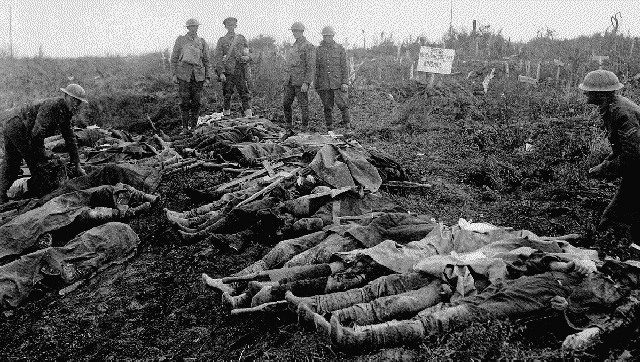There has been a recent push to remember the WWI casualties that occurred on all sides of the conflict. This push arises as the centenary of the First World War begins, inspiring people to remember all facets of this major part of international history. British politician Baroness Warsi is a major proponent of the belief that all WWI casualties should be remembered, regardless of nationality or even the side on which they fought.
The First World War inspired a great deal of camaraderie between nations, teaching many soldiers that they could hold common beliefs with those of other nations despite their cultural heritage. Baroness Warsi gave a speech on the importance of upholding such values of cooperation and respect between nations who have suffered WWI casualties while fighting alongside one another a hundred years ago. Due to the spread of conflict worldwide, many members of today’s generations had relatives who fought together during the war. This allows for them to see one another as kinsmen regardless of national boundaries.
This belief has been shared long before Baroness Warsi brought it to contemporary generations, and was first put forth by a Turkish general named Mustafa Kemal Ataturk. He has become well-known for his speech regarding WWI casualties as having a shared heritage, becoming members of the friendly nations in which they died as a result of their sacrifice. This sort of kinship has extended to include not only the Allies, but the Germans as well, The Telegraph reports.
Germany does not frequently honor their dead. While they have war cemeteries and many Germans feel that more should be done to honor them, Germany tends to try and shy away from any displays of nationalism such as those which led to the World Wars. Their WWI casualties are therefore largely unsung, even when it comes to men such as the Red Baron who fought tooth and nail for Germany during the First World War.
Tribute to WWI casualties has been on the rise leading up to the centenary, and may continue going strong for the next four years. The centenary is technically not over until 2018, one hundred years after the close of the war. This means that Germany’s stance on honoring their fallen soldiers may change, as many are starting to separate the First World War from its political implications in the Second World War and the Holocaust. All around the world, the millions of WWI casualties are now seen as losses of life that stemmed from political upheaval in a still burgeoning world, and all such losses are to be mourned equally.
